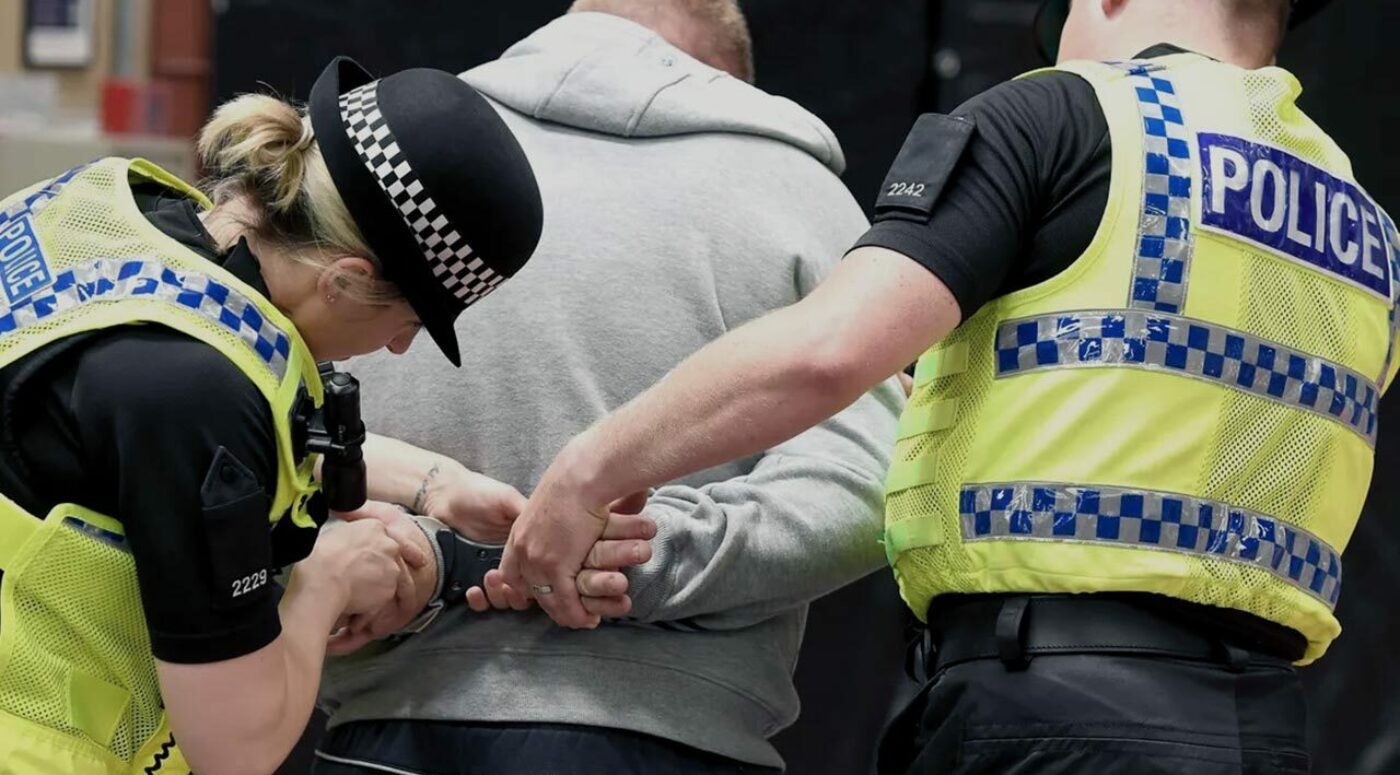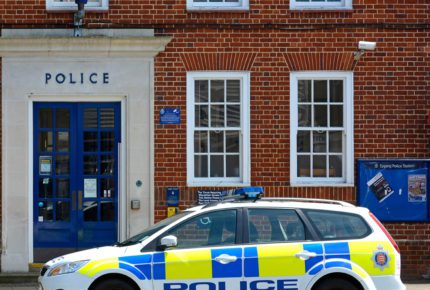

Have you just found out that you have been called in for a police interview? If so, you might not know what to expect and you’re probably worried about what might happen. You might have even heard that the best thing to do is to say ‘no comment’ to whatever the police ask you. But why? And what implications does saying no comment have for your case? In this article, we will explain why you might or might not, on balance, want to say no comment at a police interview.
What does it mean if you say ‘no comment’ in a police interview?
Saying no comment at a police interview means, simply, that you are refusing to say anything in response to the questions being asked or the allegations being made against you by the interviewing officer.
You can say no comment for the entirety of your police interview or just for part of it (for example, for the parts where you do not have legal representation present and are not sure what to say for fear of incriminating yourself).
Does no comment imply guilt?
Technically speaking, saying no comment is not an admission of guilt, nor a proclamation of innocence. It only means that you are exercising your right to remain silent and will not be providing any further information or giving an account of what happened, until you decide otherwise.
While that may make sense from a more academic perspective, many people do worry about the practical implications of going the no comment route. Understandably, many people have concerns that saying no comment can be seen as an indirect admission of guilt because it might suggest that you have something to hide. This is completely understandable, but you should try to remember that the police aren’t able to charge anyone with a crime based solely on taking the no comment approach to the interview. And, of course, a court cannot find you guilty simply because of that reason, either.
With that in mind, when is it a good idea to respond no comment, and when is it a bad one?
Why give no comment at a police interview?
Despite concerns over potential drawbacks to giving no comment at a police interview, there are some real practical advantages to doing so. These include:
- Being able to take the time to think about what you are saying without feeling rushed or pressured by the police.
- Knowing that your answers will only be on record in a way that can’t be used against you in court, as no comment statements don’t generally count as evidence in criminal proceedings (with some exceptions).
- It being far easier to deny any allegations or charges if you have not explicitly said anything that could be used as evidence against you.
- Not having to admit to other conduct that is not illegal, but could nonetheless embarrass or damage you.
- Being given time to recall memories properly if the case is particularly old or complex.
Are there any circumstances in which I should answer police questions?
On the other hand, there are some situations in which it might not be beneficial to say no comment at a police interview. For example:
- If you believe that the police have ample evidence to charge you with a crime, no matter how you answer their questions.
- If the police are asking you a question that is only meant to establish your identity or basic details and is not related to criminal activity.
- If it might be better to answer truthfully so that you can provide details of who actually committed the crime, instead of facing charges yourself.
Since the introduction of the Criminal Justice and Public Order Act 1994, it may also be to your advantage to avoid saying no comment at a police interview to ensure that no inferences may be drawn about your decision to remain silent. This is a very complex practical and procedural matter that should be handled in consultation with your criminal defence solicitor.
Should I answer no comment at a police interview?
The bottom line is that, without knowing the details of your specific situation, no one can tell you what the exact right thing to do is in a police interview. It depends entirely on your individual case and circumstances.
For instance, if you are innocent but still think the police have enough evidence to charge you with a crime, it might be better to answer police questions truthfully instead of giving no comment to have it on record that you tried to cooperate with the police from the start of their investigations. This will support your claims of innocence later on.
Ultimately, you are the one in control of your answers in police interviews, and only you can decide if you want to refrain from answering questions. That being said, if you do choose to go with a no comment approach, it is imperative that you secure the advice of a reputable criminal defence solicitor who can advise you on your options and any potential positive or negative consequences in advance.
Does everyone have the right to silence in an interview?
In the UK, you have the right to remain silent in a police interview and can choose to say no comment or to stay completely mute during the interview. The police even inform you of this at the start of the interview or at the time of your arrest by saying:
‘You do not have to say anything, but it may harm your defence if you do not mention when questioned something which you later rely on in court. Anything you do say can be given in evidence.’
Just because you have the right to remain silent does not necessarily mean, however, that you should exercise it. As we have seen, there can be compelling reasons why you should, or should not, take the no comment approach.
How does a lawyer decide whether you should say no comment or not?
Any reputable criminal defence lawyer will have spent hundreds upon hundreds of hours with suspected criminals in police interviews. From this first-hand experience, they will be able to assess the big picture of your situation and decide whether it is better to cooperate fully with the police or to respond with no comment.
Some of the factors a lawyer will take into account include:
- details you have provided about your whereabouts and involvement (or lack thereof) in the case
- any previous arrests or convictions you have for similar offences
- any mental health concerns, diagnoses, or disabilities that may affect your ability to answer questions accurately
- current or prior addiction issues that may affect your cognitive abilities
- any vulnerabilities such as particularly young or old age, physical or mental disabilities, or history of being abused
- your demonstrated emotional strength and the probability of you ‘holding it together’ during the interview
Can you say no comment in court?
Every defendant has a privilege against self-incrimination, including at trial, which means that you are entitled to rely on the right to remain silent if you wish to do so. You may remain silent in the face of questions from the judge, from your own lawyer, or from the prosecution.
Whether it is a good idea to remain silent in court is, however, another matter entirely. Generally speaking, it not a good idea to remain silent in court because the inference of guilt is so much stronger, but some lawyers will advise it if they are highly sceptical of the strength of the prosecution’s case or if they do not think it is a good idea for the defendant to speak (if they struggle to hold their composure, are likely to get confused, or would act angrily, for example).
Only a lawyer who has all the relevant details of your case can advise on how best to proceed with answering questions in court.
Can you say no comment as a witness?
In most cases, witnesses are not allowed to say no comment if they have been summoned to court to serve in a trial. The only exception to this is if their comments would lead to self-incrimination.
Witnesses who are not at risk of self-incrimination but who refuse to answer some or all questions may be held in contempt of court.
Where to get more advice on no comment strategies?
No comment is a powerful tool during a police interview, but it is vital to remember that there are some risks associated with not answering any questions. If you’re unsure about what to do in your specific case, it is best to speak with an experienced criminal defence lawyer who can help guide you through the process. At Stuart Miller Solicitors, we have years of experience helping clients decide whether to answer police questions or take the no comment approach. Contact us today for a free consultation and more advice on how to handle questioning during a police interview.
OUR COMMITMENTS TO YOU:
-
Responsive
A legal expert will consult you within 24 hours of making an enquiry.
-
Empathetic
We will always treat you with trust, understanding and respect.
-
Specialised
Your case will be handled by an expert who specialises in your type of offence.
-
Proactive
We will take early action to end proceedings as soon as it is practically and legally possible to do so.
-
Engaged
You will be kept updated on your case at all times. We will provide a named contact available to answer your questions.
-
Caring
We understand this is a difficult and stressful time for you and your family. Our team will support you every step of the way.
-
Tenacious
We will never give up on your case. We fight tirelessly to get you the best possible outcome.

